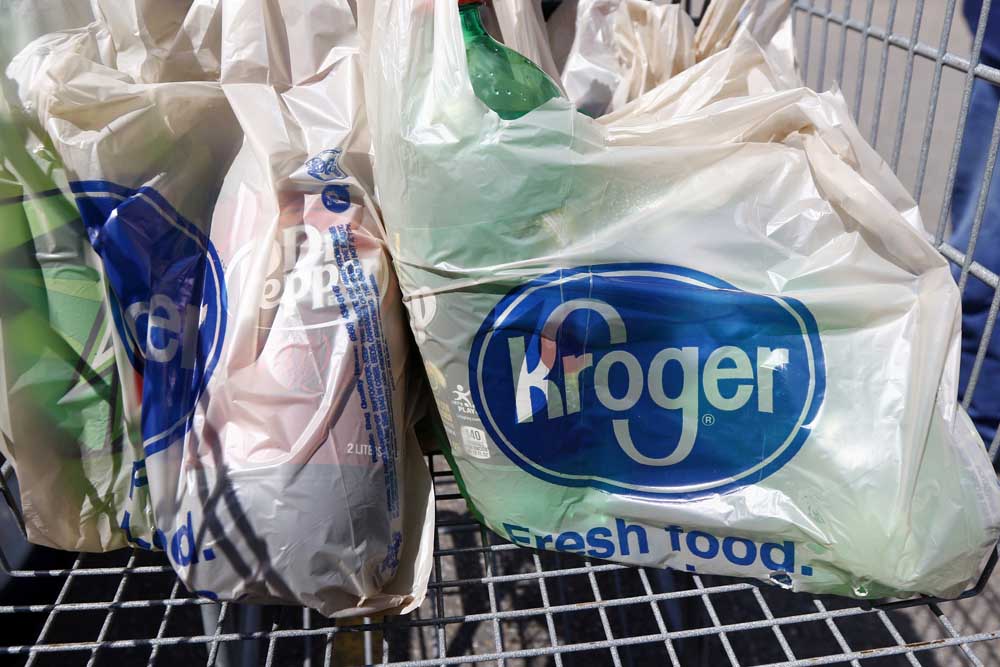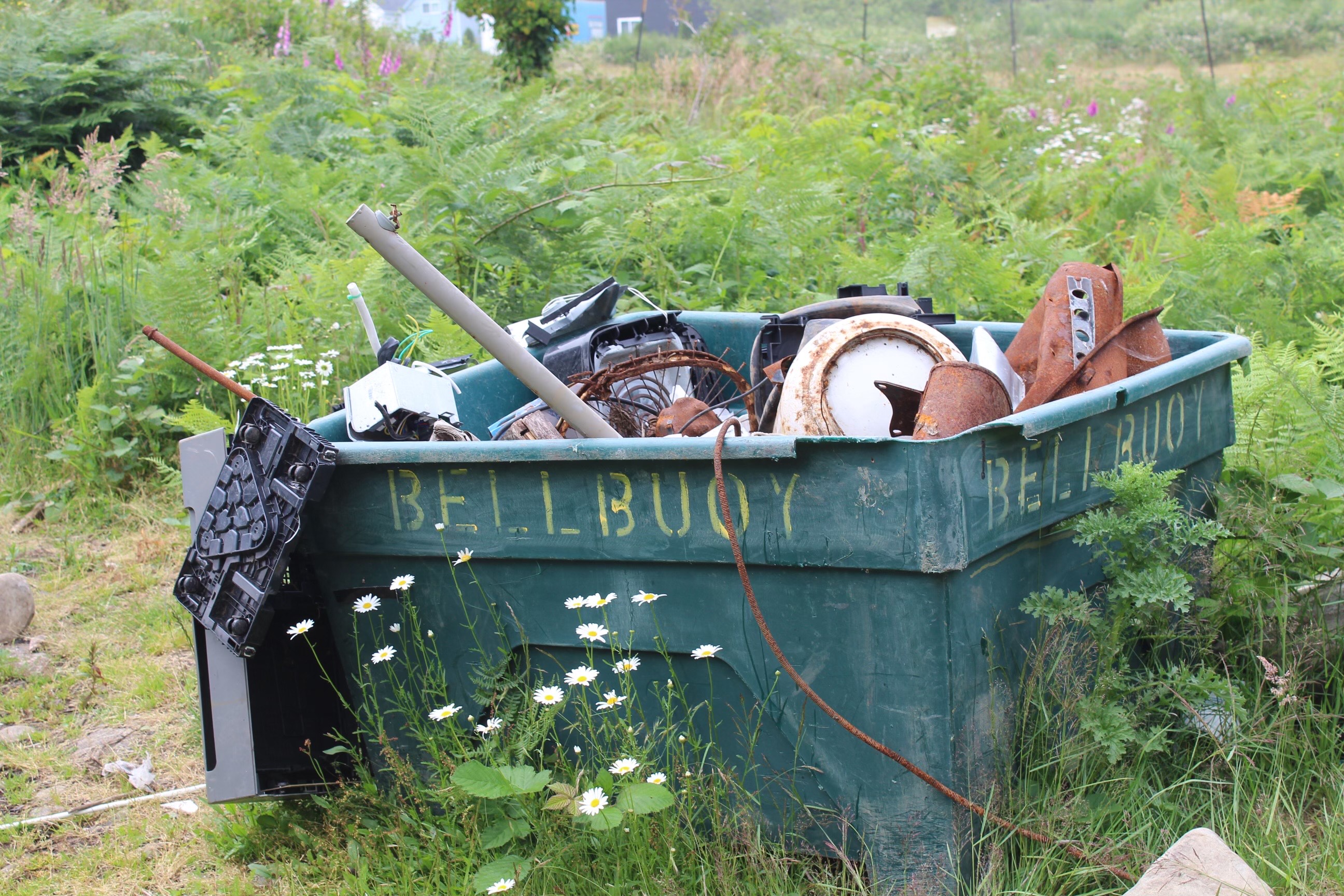North Coast looks to ban plastic bags
Published 8:00 pm Sunday, August 26, 2018

- Kroger, the nation's largest grocery chain, will phase out the use of plastic bags in its stores by 2025.
“Paper or plastic?” The question could soon be a waste of breath in Clatsop County.
City and county leaders have broached the idea of a plastic bag ban. The conversation is in its infancy, but discussion around some type of ban could appear on public meeting agendas soon.
“It always just disturbs me when I drive someplace and I see them on our roads, trees and ocean,” Astoria Mayor Arline LaMear said. “I’m aware some people like these plastic bags for convenience, but we hope to show how much damage it does to the environment.”
LaMear has reached out to a number of local officials, including the Astoria City Council, County Manager Cameron Moore and Scott Lee, the chairman of the county Board of Commissioners. Earlier this month, Gearhart City Councilor Paulina Cockrum also brought up a potential ban.
The talks come amid an expanding national discussion on plastic bags. Some states and cities around the country have adopted bans, while others have passed laws specifically blocking local governments from barring the bags.
More than a dozen cities in Oregon have passed bans, including Manzanita last year.
Last week, Kroger, the nation’s largest grocery chain, which owns Fred Meyer, announced it would phase out single-use plastic bags by 2025.
“They’re certainly aware this is coming down the pike,” LaMear said of local stores that would be affected. “I don’t think they will be opposed to this.”
Samuel McDaniel, owner of Astoria Downtown Market, studies sustainability at Linfield College. He took over the small grocery last year after working as a manager. The store recently stopped offering plastic bags, handing out its last one earlier this month.
“We have enough plastics as it is. I wanted to get rid of plastic bags, but I was worried about it, you know, hurting my sales because maybe people are going to go to the competition,” McDaniel said. “Ultimately I just said I’m going to do away with the bag and whatever happens, happens.”
His decision has created challenges, though. The store now must purchase six different sizes of paper bags, as opposed to two for plastic.
“I mean, I can see where business is going to, especially small businesses, are going to not be so acceptable to the ban,” McDaniel said.
Some shoppers reuse plastic bags after placing groceries in refrigerators and cabinets. McDaniel said customers can still bring their own plastic bags to the store. He recognized that people who ride bikes or walk long distances to and from the store often prefer to carry their items with plastic handles.
“It’s like, ‘Good for you. You don’t need a plastic bag. Well, you’re driving a car that’s pumping emissions, so there’s other environmental aspects,’” McDaniel said. “Now people that are walking and riding their bikes are being punished because they don’t have a plastic bag.”
In addition to clogging landfills, the bags can cause issues when they end up in recycling centers.
“We don’t have a market for them,” said Rhonda Green, a specialist with Recology Western Oregon. “What happens is they get caught in the teeth of the conveyor system at the recycling center.”
Some people who oppose bans describe the utility of plastic bags in situations besides shopping, including cleaning up pet waste. LaMear said she would not propose eliminating plastic dog waste bags offered in public places.
Her goal, rather, is to eliminate single-use plastic bags in grocery stores. The mayor suggested that reusable bags are inexpensive and available at large grocery stores.
LaMear likened her idea to an ordinance passed in Port Angeles, Washington, earlier this year that — after months of debate, three public hearings and a 4-3 vote by the Port Angeles City Council — banned thin plastic carry-out bags at stores. The ordinance also requires stores to charge a minimum of 5 cents for any bag handed out, not including for customers on food assistance programs. Stores that violate the law are required to pay a $250 fine. The Astoria City Council has scheduled a work session for Sept. 12 to discuss the topic. Gearhart and the county commission have yet to pencil in similar meetings.
LaMear approached the county hoping that it could lead the effort. Whether that could be one countywide ordinance or a template for cities to follow is unclear. After LaMear reached out to Moore, county commissioners directed staff at a meeting last week to schedule a work session.
“Instead of having a piecemeal from city to city, it would make sense to have one ordinance that everyone can follow and get behind,” Lee said.
LaMear pointed to the importance of Warrenton’s support for such a ban as key. A number of grocers — including Fred Meyer, Walmart and Natural Grocers — are located in Warrenton.
“Unless they joined us, it would make it more difficult,” she said.
Warrenton Mayor Henry Balensifer said that, while he wants to have a discussion about how to tackle the issue, he is not necessarily in favor of a ban.
Balensifer pointed to the fact that different types and sizes of plastic bags exist. Other questions, such as how to carry out wet produce if a paper bag is the only option, should also be discussed, he said.
“The concept is something I support, but the devil is in the details,” he said. “The market tends to work itself out better than if a piece of legislation forces it.”
For McDaniel, a nuanced approach to a plastic bag ban would make the most sense.
“There needs to be more than just a ban,” he said. “There needs to be a system set up so that it’s successful.”









